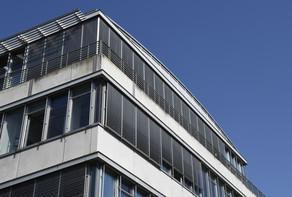M.Sc. Modul 2: M-Projekt 05
Re-envisioning Postindustrial Regions
Betreuung: Dipl.-Geogr. Marian Günzel, Dipl.-Ing. Andreas Gravert (ROP)
The Ruhr is Germany’s largest industrial region. Today, it contains a declining population of 5.2 million inhabitants. It is a poly-centric agglomeration consisting of 11 major cities (Dortmund, Essen, Duisburg, and others) and four counties with 42 smaller communities, covering a total area of 4435 km². Traditionally it has no regional capital and only a weak regional administration. Largely based on the industrial mono-structure of coal and steel production, the Ruhr region was once the powerhouse of the German. In the 1970’s the Ruhr entered a structural crisis. Persistent high unemployment reached up to 20%; German coal production was no longer competitive and the steel industry went into sharp decline as prices were undercut by overseas suppliers. Attempts to move into service industries and high technology were often hindered by cultural, environmental and structural legacies. Confronted with further contemporary trends – demographic change, diversification of lifestyles, increasing mobility, global city competition, low-carbon ambitions, climate change adaptation etc. – the Ruhr is in an ongoing process of reorientation and redefinition.
Zeit und Ort
| Tag | von | bis | Rhytmus | Ort | Beginn |
| Mo | 08:30 | 11:45 | wöchentlich | GB I / 401 | 21.10.2013 |
| Mi | 08:30 | 11:45 | wöchentlich | GB I / 401 | 16.10.2013 |
In October 2009, the Regional Association Ruhr (RVR) overtook the planning authority of the Ruhr area. Thus, for the first time for 34 years, the “Metropolis Ruhr” is able to make its own regional planning decisions. In this context, the RVR is now searching for a new “Leitbild” (~ strategic vision). In view of past attempts to promote a common image and identity for the Ruhr and in view of a complex stakeholder environment, the search for a common, effective and innovative strategic vision can be considered challenging.
The M-Projekt will be dealing with this challenge using an analytical as well as a conceptualizing perspective. Strategic planning attempts in other postindustrial regions in Europe and beyond will be looked at. Crucial questions are, amongst others: How do postindustrial regions, such as the Ruhrgebiet, reposition themselves in the global city competition? What strategic visions and images, if any, do postindustrial regions stress? How are these visions developed, and who are the key stakeholders? Why are these strategic visions developed, and what is their impact on stakeholder cooperation and spatial development?
Kontakt
Dr. Marian Günzel
Dipl.-Geogr. Andreas Gravert
Weitere Informationen:
Art der Veranstaltung: Projekt
Dauer: 2 SWS
Punkte: 10 LP





